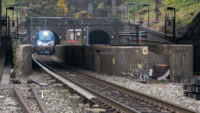Voter frustration with the economy was evident on Nov. 2 in statehouse and congressional changes, but it also played out in how ballot funding and other initiatives fared. Some big-ticket state and local finance measures were rejected by voters, while others passed less enthusiastically than in better times. Also enacted were new restrictions that could complicate public-works procurement.
Alabama voters turned down a proposed constitutional amendment to earmark $1 billion over a decade for road construction projects, but Rhode Island, Fairfax County, Va., and Austin, Texas, each approved close to $100-million-a-year transportation funding measures, says the American Road & Transportation Builders Association. ARTBA says that, of 13 measures tracked that would hike spending through bonding, transfers or new tax revenue, voters OK’d eight—a 61% approval rate. In the last three elections, measures passed with 77% approval, on average, the group says. The 2010 measures will generate more than $376 million in new transportation infrastructure investment, ARTBA says.
Mesa, Ariz., residents gave a decisive victory to a financing measure for an $84-million Chicago Cubs spring-training baseball stadium, but other votes were squeakers. One Houston-area school district approved its $459-million school construction package by less than 200 votes. “Anytime a bond passes related to schools, we’re happy,” says Jerry Nevlud, CEO of the local Associated General Contractors chapter. A $155.2-million statewide schools funding measure in New Mexico lost by 2,500 votes.
Californians defied refiners’ lobbying to defeat a measure that would have suspended statewide greenhouse-gas cuts until jobless rates declined. Voters also fenced in millions in redevelopment and transportation funds by closing loopholes that had allowed officials to use monies for other state expenses. San Diego County voters sided with open-shop firms against labor in approving, with a 76% majority, a ban on project labor agreements in county public works not linked to state or federal funds. But in neighboring Nevada, voters rejected repeal of restrictive eminent domain rules that state officials say could extend schedules and hike costs on transportation projects.


Post a comment to this article
Report Abusive Comment